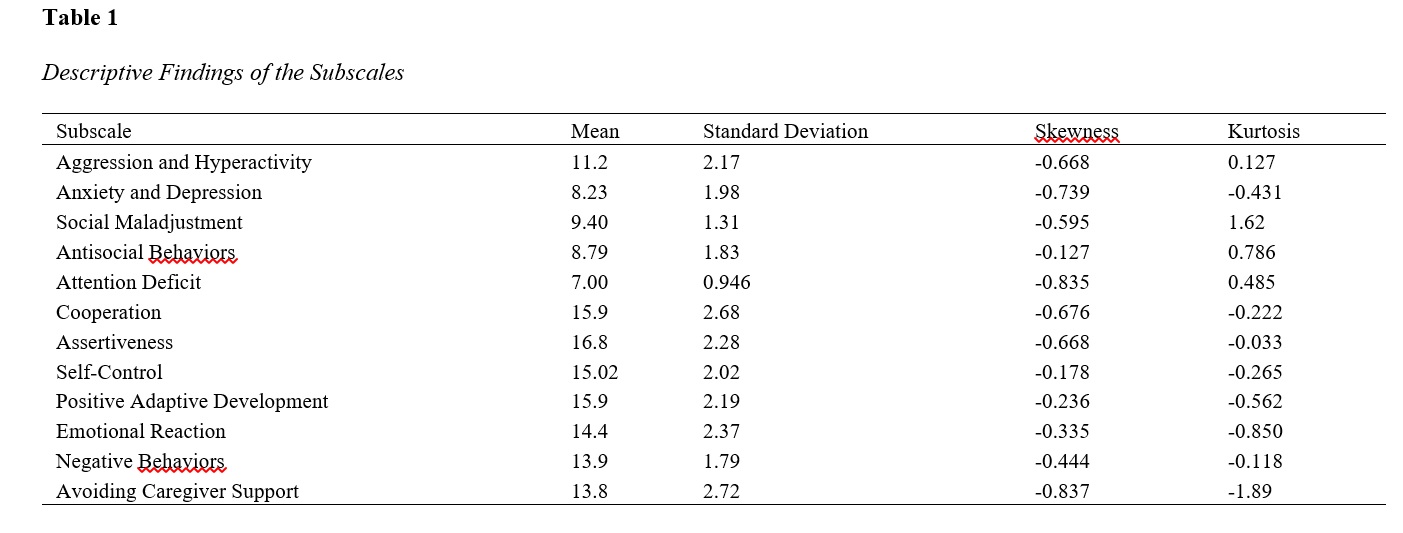Predicting Children's Behavioral Disorders Based on Mothers' Social Skills Mediated by Their Attachment Styles
Keywords:
Behavioral disorders, social skills, attachment stylesAbstract
Objective: The aim of the present study was to develop a model for predicting children's behavioral disorders based on mothers' social skills, mediated by their attachment styles in the city of Isfahan.
Methods and Materials: The research method was descriptive and correlational. The research population consisted of all children aged 8 to 11 years in Isfahan in 2023, from which a multistage cluster random sample of 310 children was selected. The research instruments included the Social Skills Rating System (Gresham et al., 1990), the Attachment Style Questionnaire (Caspers et al., 2006), and the Rutter Behavioral Scale (Rutter, 1975). The study employed structural equation modeling (SEM) and AMOS-23 software to evaluate the proposed model.
Findings: The findings indicated that the path coefficient from social skills to behavioral disorders was β = -0.28, which was significant at P = 0.05. The path coefficient from attachment styles to behavioral disorders was β = 0.47, which was significant at P ≤ 0.05. The results showed that social skills predict behavioral disorders through attachment styles (β = 0.29, P > 0.05).
Conclusion: It is concluded that the model predicting children's behavioral disorders based on mothers' social skills mediated by children's attachment styles in the city of Isfahan has a good fit.
Downloads

Downloads
Additional Files
Published
Submitted
Revised
Accepted
Issue
Section
License
Copyright (c) 2024 Shirin Haji Adineh (Author); Armin Mahmoodi (Corresponding Author); Alireza Maredpour (Author)

This work is licensed under a Creative Commons Attribution-NonCommercial 4.0 International License.














